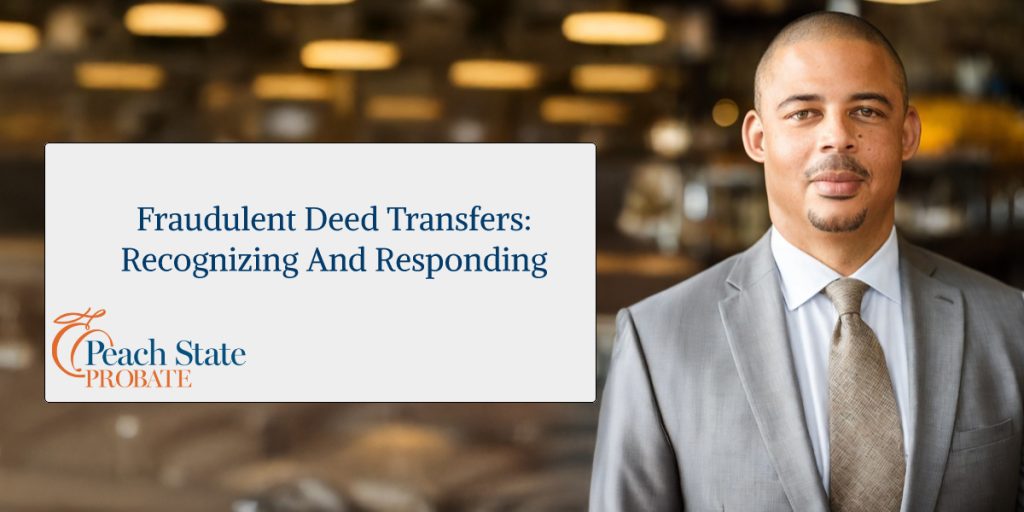Fraudulent Deed Transfers are a growing threat to property owners, and the impact can be both distressing and financially devastating. Imagine discovering that your home or land was signed over to someone else—without your consent and often without your knowledge. It is an unsettling scenario that is, unfortunately, all too real for many in today’s world, including in Sandy Springs, GA. Fraudsters are continuously developing new tricks for stealing ownership, preying on anyone, from elderly homeowners to busy professionals. Understanding how these scams work and what you can do to protect yourself is crucial. This article guides you through the key facts about fraudulent deed transfers, offering tips and resources for prevention and recovery.
Understanding the Problem – Defining Fraudulent Deed Transfers
At its core, a fraudulent deed transfer involves illegally changing the ownership of a property without the legitimate owner’s consent. This often occurs when someone forges your signature on a deed or falsifies documents to make it appear as though a sale or transfer occurred. Once recorded, the fraudster might take control of the property, try to sell it, or use it as collateral for a loan.
For example, imagine an elderly homeowner targeted by someone who forges paperwork to transfer her home to their own name. She is later shocked to find out she no longer holds legal rights to her lifelong residence. In another case, a busy landlord might miss a fraudulent transfer on their rental property title until a lender tries to collect on a loan they never authorized. These cases show how easily someone’s property and peace of mind can be threatened by this form of fraud.
Why It’s Critical to Be Aware of Fraudulent Deed Transfers
Failure to recognize and address fraudulent deed transfers can have life-changing consequences. Victims often face financial loss, legal battles, and severe emotional stress. Property owners not only risk losing their homes or investments, but must also fight to restore their rights, which can take months or even years.
Awareness and swift action are especially important for those with assets in growing regions like Sandy Springs, GA. When fraud goes undetected, it can jeopardize generational wealth and the stability of families. For some, restoring ownership means navigating complex systems and dealing with challenging legal hurdles.
- Scenario 1: A retiree discovers her title was transferred to a stranger, putting her at risk of eviction and financial hardship.
- Scenario 2: A rental property owner is notified of an outstanding mortgage loan obtained fraudulently against their property, damaging their credit and reputation.
- Scenario 3: An investor’s real estate is fraudulently sold, resulting in months of litigation to recover rightful ownership and lost revenue.
Breaking Down the Process – How Fraudulent Transfers Unfold in Sandy Springs GA
- Step 1: A fraudster acquires personal information about a property owner, such as their name, address, or tax records, which are often publicly available in Sandy Springs, GA.
- Step 2: They forge the owner’s signature on a fraudulent deed and create false documents to transfer the property to themselves or an accomplice.
- Step 3: The fraudulent deed is submitted to the local county recorder or deeds office. Once accepted, it gives the appearance of a legitimate transfer until the real owner discovers the crime.
Top Suggestions for Handling Fraudulent Deed Transfers Successfully
Your Questions Answered: Fraudulent Deed Transfers in Sandy Springs GA
How Peach State Probate Law Group Stands Beside Property Owners
Peach State Probate Law Group brings peace of mind and powerful legal knowledge to property owners facing the threat of fraudulent deed transfers. Backed by years of experience and a deep understanding of Georgia real estate law, their team guides clients through every step of prevention, investigation, and resolution. If your property rights have been threatened, Peach State Probate Law Group helps by reviewing documentation, communicating with local officials, and, when necessary, litigating to retrieve wrongly transferred deeds. Clients appreciate their compassionate, proactive approach, knowing they have dedicated advocates on their side. From explaining complex legal processes to handling negotiations, the firm ensures that each client feels informed, supported, and protected throughout their case.




